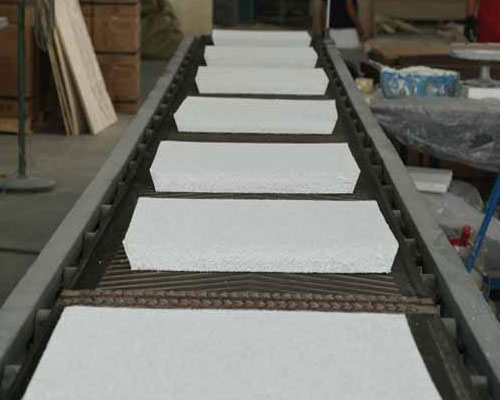The ceramic foam filter has the characteristics of large filtering area and high filtering efficiency. Aluminum foundry uses ceramic foam filters for molten aluminum filtration. The alumina ceramic foam filter has stable chemical properties and can withstand the corrosion of acids, alkalis and other organic solvents. Moreover, the ceramic foam filter can withstand high temperature changes, and there is no slag in the production process. The ceramic foam filter can separate solid particles suspended in liquid or gas or two immiscible solutions. It can make molten steel fill the cavity more evenly. Molten metal has a higher tendency to turbulence during casting. Alumina ceramic filters are suitable for aluminum casting filtration, such as aviation, transportation, computer hard disk drives, PS skirting boards, can materials, turbojet fan blades and other aluminum alloy precision castings.
Since the advent of the ceramic foam filter (CFF) in the 1970s, it has been widely used in aluminum castings due to its high porosity, large adsorption area, and good filtering and purification effects on aluminum melt. The size of the Asian cast filter can be determined according to the size of the CFF porosity, which is the number of holes per inch (ppi).
The aluminum foundry filters range from 10 ppi to 70 ppi. Conventional aluminum smelting and foundries use 10 ppi to 20 ppi specifications for small castings, which can remove coarse inclusions and improve the quality of the castings.
The 30 ppi filter used by large aluminum processing enterprises in the production of large castings is not suitable for impurity removal. The use of a higher specification filter can easily lead to filter clogging and shorten the filter life.
Nowadays, with the improvement of the quality requirements of aluminum products, the application of porous ceramic filters has also been promoted. The porous ceramic filter has a porosity between 80% and 90%, which can effectively eliminate micron-sized inclusions. In addition, through adsorption, the ceramic filter plate can also remove the harmful elements (Na, K) in the aluminum liquid. When filtering aluminum alloy, the filter plate will immediately undergo thermal expansion to ensure that it will not break when heated.

